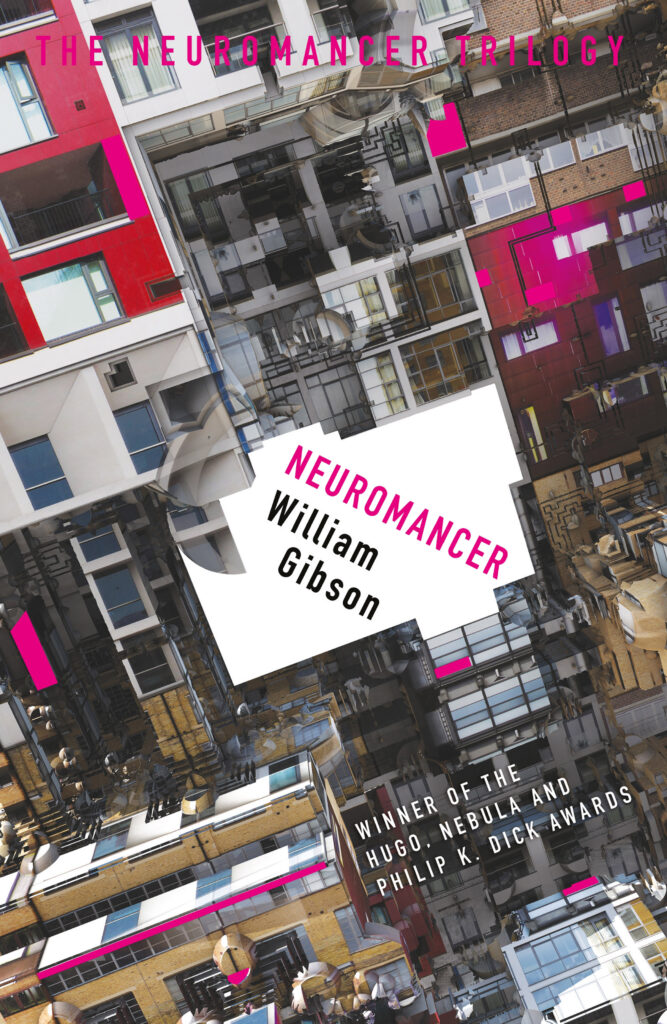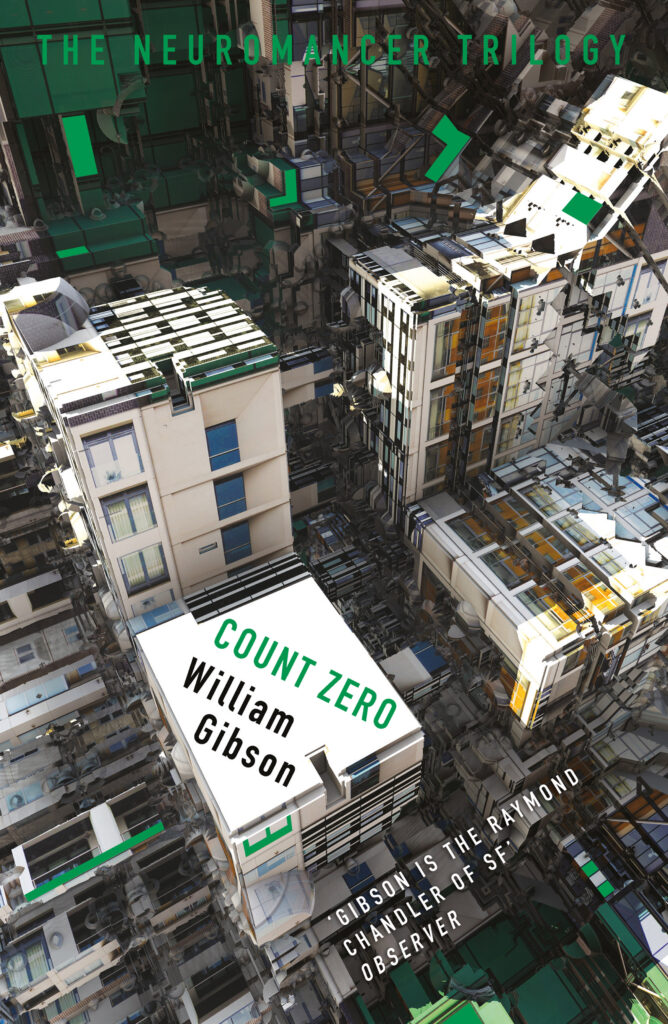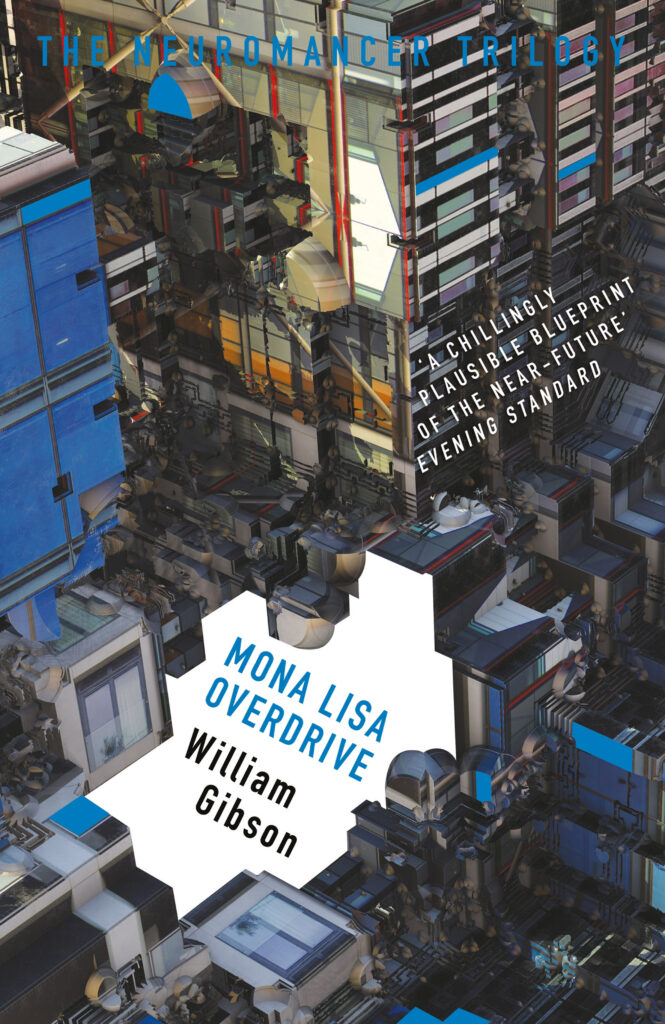
Borrowing from Wikipedia:
William Ford Gibson (born March 17, 1948) is an American-Canadian speculative fiction writer and essayist widely credited with pioneering the science fiction subgenre known as cyberpunk. Beginning his writing career in the late 1970s, his early works were noir, near-future stories that explored the effects of technology, cybernetics, and computer networks on humans – a “combination of lowlife and high tech” – and helped to create an iconography for the information age before the ubiquity of the Internet in the 1990s. Gibson coined the term “cyberspace” for “widespread, interconnected digital technology” in his short story “Burning Chrome” (1982), and later popularized the concept in his acclaimed debut novel Neuromancer (1984). These early works of Gibson’s have been credited with “renovating” science fiction literature in the 1980s.
Neuromancer was commissioned by Terry Carr for the second series of Ace Science Fiction Specials, which was intended to exclusively feature debut novels. Given a year to complete the work, Gibson undertook the actual writing out of “blind animal terror” at the obligation to write an entire novel – a feat which he felt he was “four or five years away from”. After viewing the first 20 minutes of the landmark cyberpunk film Blade Runner (1982) which was released when Gibson had written a third of the novel, he “figured [Neuromancer] was sunk, done for. Everyone would assume I’d copped my visual texture from this astonishingly fine-looking film.” He re-wrote the first two-thirds of the book twelve times, feared losing the reader’s attention and was convinced that he would be “permanently shamed” following its publication; yet what resulted was a major imaginative leap forward for a first-time novelist.
______________
I first stumbled on Willam Gibson’s Sprawl trilogy in my favorite second-hand bookstore in Berlin, Saint George’s. As a sci-fi fan, I had heard of the books but hadn’t gotten around to buying them. But the time had come! And I did not stop with the first. So here are a few notes on the books.
Neuromancer

I thought I would like the book (being a Nebula, Hugo, and Philp K. Dick award winner and the inspiration for the Matrix movies) when I bought it but was unprepared for how it dragged me in. Gibson “feared losing the reader’s attention” – well, hell no! He had my undivided attention for the whole book. I read the better part of it on a Saturday after too many drinks the previous night, willingly giving up my hangover nap time for a crazy trip through a devastated world, cyberspace, and a space colony.
I loved how the characters and their world didn’t have or need any introduction. They were just there. Came and went like Molly in Case’s life. Still managing to be complex and relatable.
Count Zero

Just like Neuromancer, Count Zero dragged me into the crazy world of Gibson. And had me hooked from the very sudden beginning. Painting a crazy picture of big companies ruling the world and people spending way too much time in “cyberspace”. Well, … maybe not so crazy anymore.
It is quite amazing, how Gibson had this insight into the future almost forty years ago.
So, if you like fast-moving plots, futuristic worlds, and the Matrix movies and to philosophize about our state of mind in this always-connected world, this book is for you.
Mona Lisa Overdrive

Somehow the last book of the Sprawl series didn’t pull me instantly in like the others did. Maybe the timing was just wrong.
After a bumpy start, it was very satisfying to meet some characters again and get some references to what became of others, though.
But altogether the series was wonderful and groundbreaking at the time. The legacy is visible in a lot of books and movies today. So I am very thankful to Gibson. I mean, I am not the only one who can’t imagine a world without the Matrix movies, right? 😆
And by the way, a series based on Gibsons The Peripheral just came out. Looks to have some cyberspace and time travel in it. So I’m gone to check it out 😉

